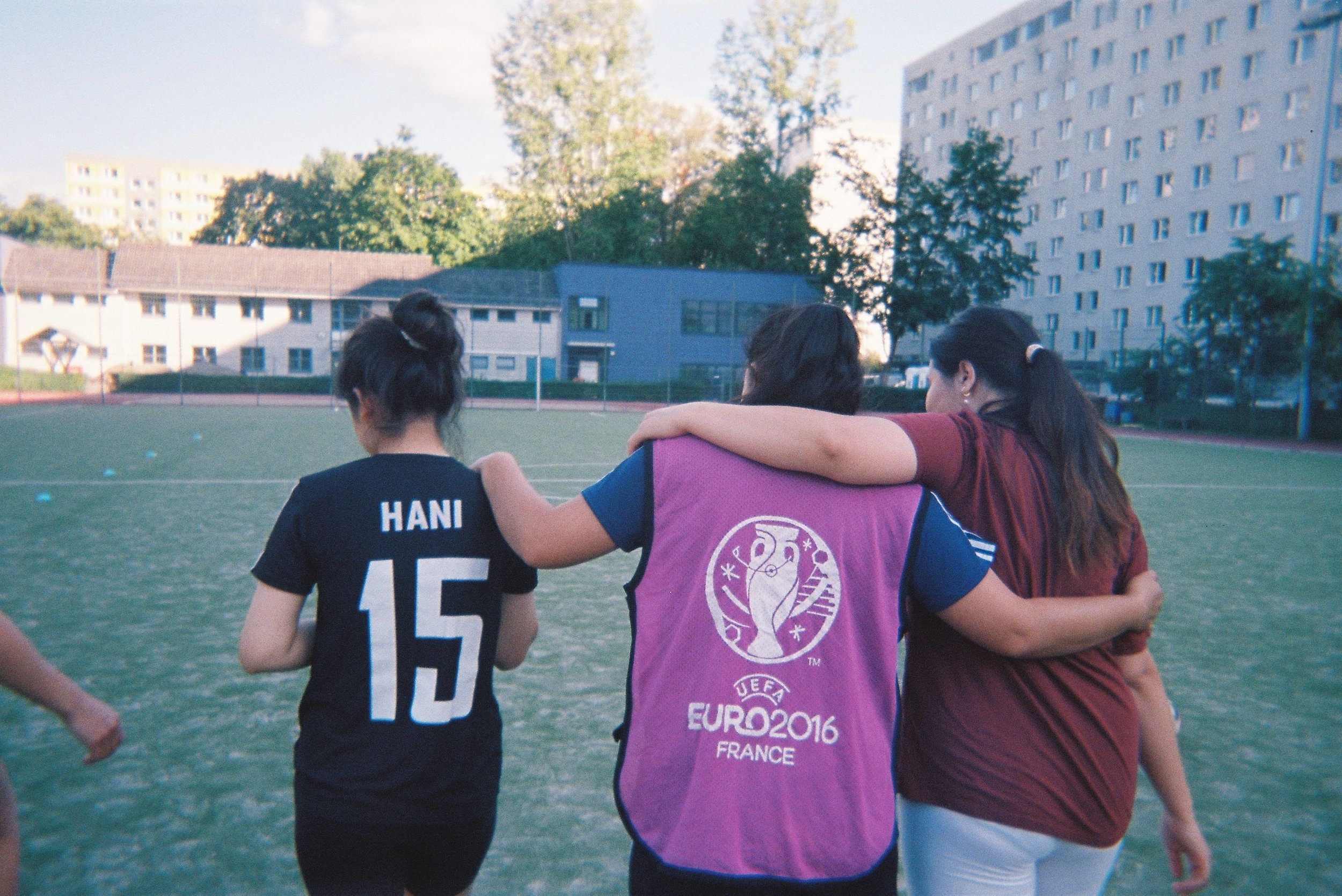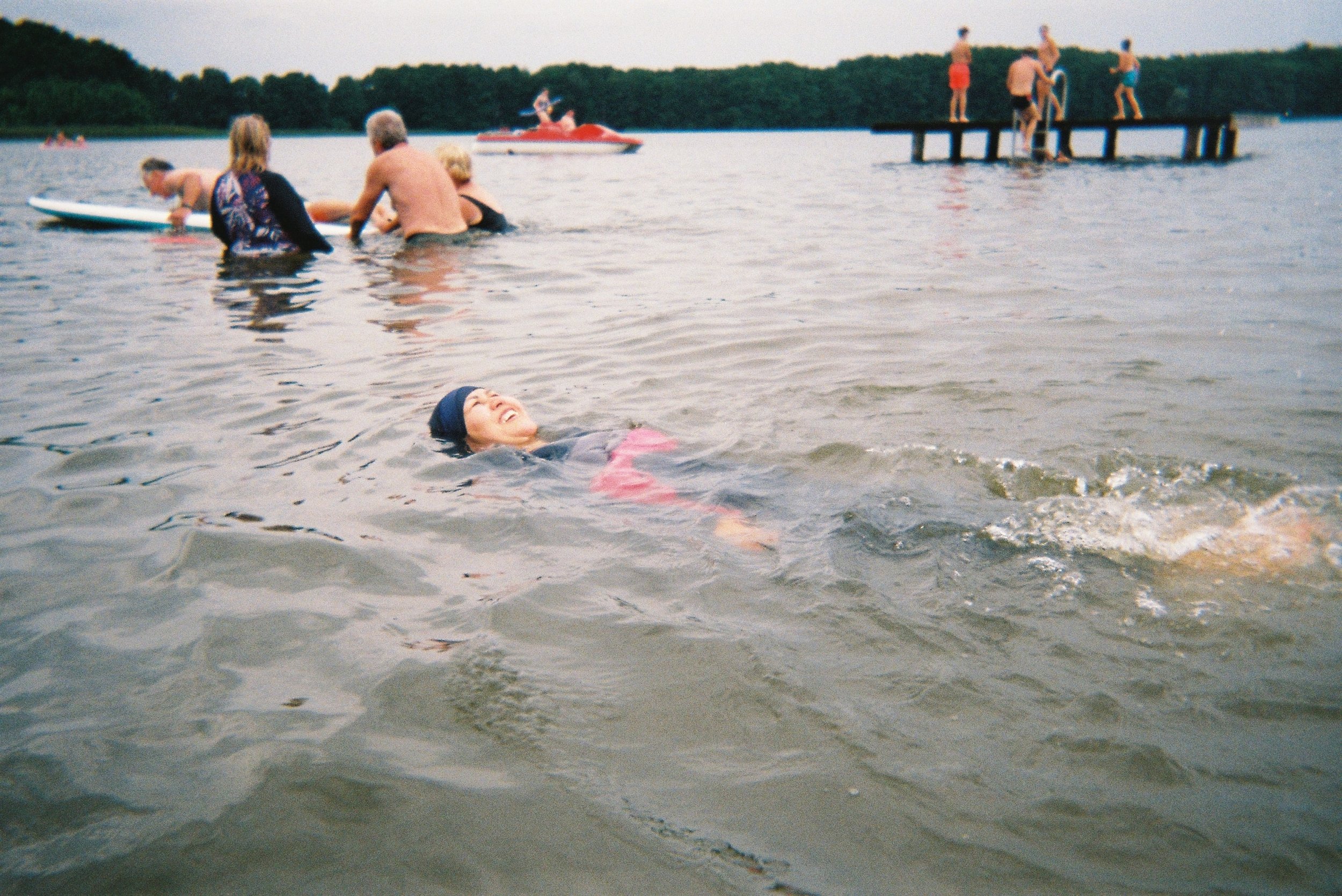Empowered By Resilience
Atifa Gardi, Germany
We have teamed up with the adidas Breaking Barriers Project to share the inspiring stories of 14 Champions across Europe as they advocate for women and girls in sport within their local communities. The second instalment of this series showcases eight Champions from Germany, Greece, the Netherlands, Sweden, and the UK who are advocating for the next generation of women in sport. Atifa Gardi is an adidas Breaking Barriers Champion and a yoga instructor with Champions ohne Grenzen in Berlin.
Want to join us in breaking barriers for women and girls in Europe? Join the adidas Breaking Barriers Academy.
My name is Atifa Gardi, and I am 19 years old. I was born and raised in Iran, but originally, I am from Afghanistan. In Iran, I never had the chance to do sports. I think part of it was because we were migrants there, and partly because of the very strict societal rules for women. For example, it was not appropriate for a woman to go jogging outside. Right now, I am living in Berlin.
I first learned about Champions ohne Grenzen (CHOG) in 2021 through a friend who plays football. She said they were very welcoming, and it did not matter if I had never played football. Later, when CHOG started offering yoga classes, I volunteered to teach. When I first started doing yoga, I was in Lesvos in Greece, on my journey towards Germany as a refugee. Although the situation there was so tough and stressful, I had some of my most peaceful moments while doing yoga. When I was teaching, the smiles on people’s faces after the practice, their relaxed bodies, and their calmness gave me so much happiness. The fact that I am able to make people feel that way is precious to me. I just wanted to feel those feelings again.
What has your sports journey been like up until now?
I think "challenging" is the right word for my sports journey. In the beginning, everything was very hard. Not only physically, but also mentally, as I was in a mixed space, breaking the norm and surprising people who underestimated me. Secondly, being a coach gave me a feeling of leadership, which I was not used to. I enjoyed this feeling. I liked that I was able to manage the situation and that I can be the one that people can put their trust in. However, over time, I learned to overcome that feeling, and now I cannot imagine my life without sports.
Why did you start working in your community? Why are you motivated to do the work that you do? Why do you think your work with girls is important?
As a woman from Afghanistan, I have always witnessed how women are discouraged from participating in sports, and other priorities are forced upon them. I believe that we deserve opportunities to try sports without worrying about other obligations. I am happier when I do sports with girls from my community because I know what it takes for them to be here, and I feel empowered by their resilience.
One of my friends started boxing in Lesvos. She was the first girl to join the boxing class and continued boxing until now. She has participated in boxing competitions several times. My other friend started playing football about two years ago and now is playing in the state league. Their hard work and effort are very impressive and admirable.
What did you try to capture with your photos? Was there a deeper meaning to the photos? What do these images mean to you as a Champion of the adidas Breaking Barriers Project?
The photos were taken in my yoga class, at home, during CHOG football training, and during CHOG boxing training. Some of the photos were taken at a camp where our participants tried swimming in a lake for the first time. At the camp, we did many activities like cycling, swimming, volleyball, football, and table tennis. The idea of swimming came because our project was about swimming. We wanted to give the women a chance to swim outside together, and to challenge themselves and what they have learned in the swimming classes.
I tried my best to capture the meaning of sports, which for me, is about helping each other. I also tried to capture the happiness, togetherness, and community I feel while playing sports.
What is your favourite photograph? Why?
My favourite photograph is the one that shows the girls braiding each other’s hair during the camping trip. In my opinion, braiding hair is a very intimate way of taking care of each other, a way of showing affection. I find it very unique to women. Another favourite photograph is the one that shows the girls helping each other in the lake because to me sports is about helping each other.
Why is sport important for your community? Why is it important to you?
We need sports for our mental health, especially in my community, given all the hardships we have been through as Afghan girls and as refugees. We need a place to feel free and to take a break from the constant struggles in our lives - a place to enjoy and celebrate together.
Cultural barriers are a very big part of the hardships. I know many girls whose families expect that their time should be spent looking after the home and not exploring hobbies outside of this, like sports. This leads them to lose their confidence and enthusiasm for sports, even if they eventually get the approval of their family.
What role does sport play in your community and your culture or society? What are some of the prevailing challenges for women and girls in your communities?
For my community here in Germany, sport is the link that connects us together across different ages and perspectives. It’s not just a physical activities. It’s an avenue to create a sense of belonging, and that’s what it did for us after we had to leave Afghanistan - our country and homeland. Sports became a way to express ourselves and interact socially. Unfortunately, this is not the case most of the time for women in Afghanistan. They must fight stereotypes that limit access to playing sports.
What are the opportunities for women and girls to play sports in your community and in Germany?
In Berlin, there are many projects women and girls can participate in. However, in some of the smaller towns, there are fewer opportunities to play. I know many girls who cannot find a community that gives them the chance to play without worrying about the financial aspect.
What impact has the adidas Breaking Barriers Project had on your journey as a leader and change-maker in women’s sport? What are your ambitions for the future?
Being an adidas Breaking Barriers Champion has helped me become more aware of the challenges in women's sports. I feel more responsible and serious about my role as a change-maker, and I hope to continue to work on projects like this.
What do you think the future looks like for sport in your community and Germany? What do you want to change? How would you improve gender equality?
I am very hopeful for the future of both my community and Germany. The way that women and girls are pushing and fighting makes me believe that we can achieve anything. Unfortunately, women and girls do not receive the same salary and attention as men in sports. If I could make a change, I would address that issue. Regarding gender equality, I hope to continue to participate and be a role model in women's sports and, as a coach, provide equal opportunities.



















